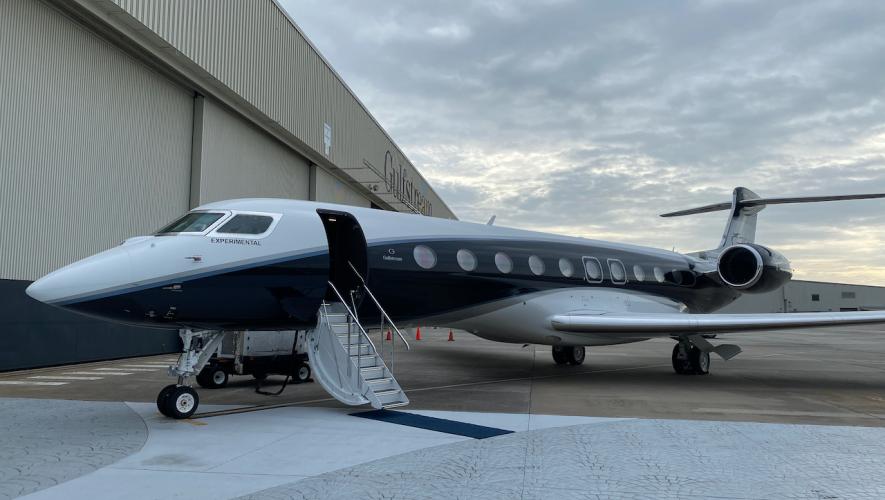Improved operating economics and new technology has given freight operators the potential to boost yields. CargoLogicAir claims that its new Boeing 747-8 freighter – powered by four of General Electric’s GEnx-2B67 – gives it the lowest unit cost in the marketplace. The U.K.-based operator is flying the widebody jets at least fifteen hours each day, and just about anywhere around the globe.
The strategy to boost the profitability of freight operations also involves carrying a better class of cargo. And that means fitting out the aircraft to be able to accomodate goods that can be as demanding as any first class passenger.
For instance, by fitting the 747s with temperature and humidity controlled containers, CargoLogicAir can carry sensitive pharmaceuticals or electronics. Other parts of the aircraft are specially modified to carry odd-sized bits of high value hardware, such as equipment for the oil and gas industry or vehicles.
CargoLogicAir’s Russian partner Volga-Dnepr airlines is taking a similar approach to boosting revenues. Its Antonov AN-124-100 freighters offer flexible loading options, such as ground-level loading doors. This gives the operator a commercial advantage in being able to serve clients at airports that have very limited ground support infrastructure.
With a maximum payload of 139 metric tons, the Boeing 747-8F lays claim to offering the heaviest lift capability in the air freight market, but the An-124-100 is no slouch with a payload of up to 120 metric tons.
Between now and 2035, Boeing believes the global market will have a demand for around 550 new widebody freighters – almost one quarter of what it sees as the total air cargo aircraft market over this period of 2,370 units.
Music: Air Hockey Saloon by Chris Zabriskie







